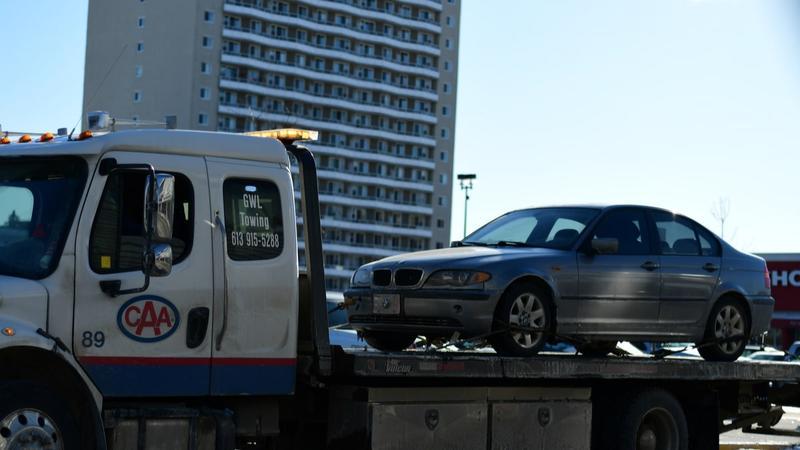If you’re in need of a tow, you’re likely having a bad day already, but new rules and regulations in Ontario aim to ensure your bad day doesn’t get worse. Originally announced at the end of 2015, some of the new rules and regulations are now in effect, with more to come on January 1, 2017.
The first round of changes affects the Repair and Storage Liens Act. As of July 1, 2016, if your vehicle is registered in Ontario and it’s towed to a storage lot, you have the right to be notified within 15 days of the lien, not the 60 days that was previously outlined. This was decreased because tow and storage fees can be costly and quickly add up, and the longer the storage lot has your vehicle the more it will end up costing.
In the province’s original statement, these changes are, "expected to improve storage practices and remove associated costs from the auto insurance system."
Have you been hit with high auto insurance rates? On average, InsuranceHotline.com shoppers save $700 after shopping their car insurance rates. Make sure you’re getting the best car insurance rate deal out there, and shop around.
Tow truck and storage rule changes
As of January 1, 2017, the following rules will come into effect so drivers will know exactly what to expect if getting a tow.
- Tow and storage operators will have to get permission from you, or someone acting on your behalf, before towing or storing your vehicle. You may need someone to act on your behalf if, for example, you’ve been injured and are unable to give the permission needed.
- Tow and storage providers will have to disclose their business address, contact information and address where the vehicle is being towed.
- Tow and storage operators will have to post their rates at their place of business and online, if they have a website.
- Consumers can choose to pay by credit card or cash; and, prior to paying, will be given an itemized invoice, listing the services provided and their associated costs, and the final tally.
- Consumers, or someone acting on their behalf, will be given access to the towed vehicle, at no charge, so that items in the vehicle can be removed. Access must be given between 8 a.m. and 5 p.m. on business days.
Additionally, the new rules prohibit tow and storage providers from recommending repair and storage facilities, legal service providers or health care service providers unless asked; and, if asked, they must disclose whether or not they’ll benefit financially for the recommendation.
The majority of the 1,200 towing and vehicle storage businesses in Ontario, and some 3,000 tow truck drivers are there to help and already follow these rules, but like all professions, there are those who are less than honest. All of these new rules have been set in place to minimize the chance that you’ll fall victim to a tow truck and storage scam.
Tips for avoiding tow truck and storage scams
The Financial Services Commission of Ontario, offers the following tips to drivers who may be in need of the services of a tow truck driver:
- Some large municipalities (like Brampton, Hamilton, Mississauga, Toronto and Windsor) license tow trucks. If you live in an area that does this, look for the municipal licence number on the truck before agreeing to be towed.
- See if the tow truck is affiliated with a reputable company that you recognize.
- Listen to what the driver is saying. Does the driver recommend a particular repair facility without being asked?
- Carefully read everything the tow truck driver asks you to sign.
- Ask that your vehicle be taken to a secure location where an adjuster or appraiser from your insurance company can have access to it. You may be required to take your vehicle to a Collision Reporting Centre or police station before it goes anywhere else.
- You have the option to choose where to have your vehicle towed for repairs. Call your insurance company, as they may be able to offer you a recommendation if you need help.
Roadside Assistance
No one ever plans to be stranded on the side of the road, but it happens. Know what to do if it happens to you; stay calm, ask lots of questions, give your insurer a call for help (that’s what they’re there for), and read everything you’re given or expected to sign.
